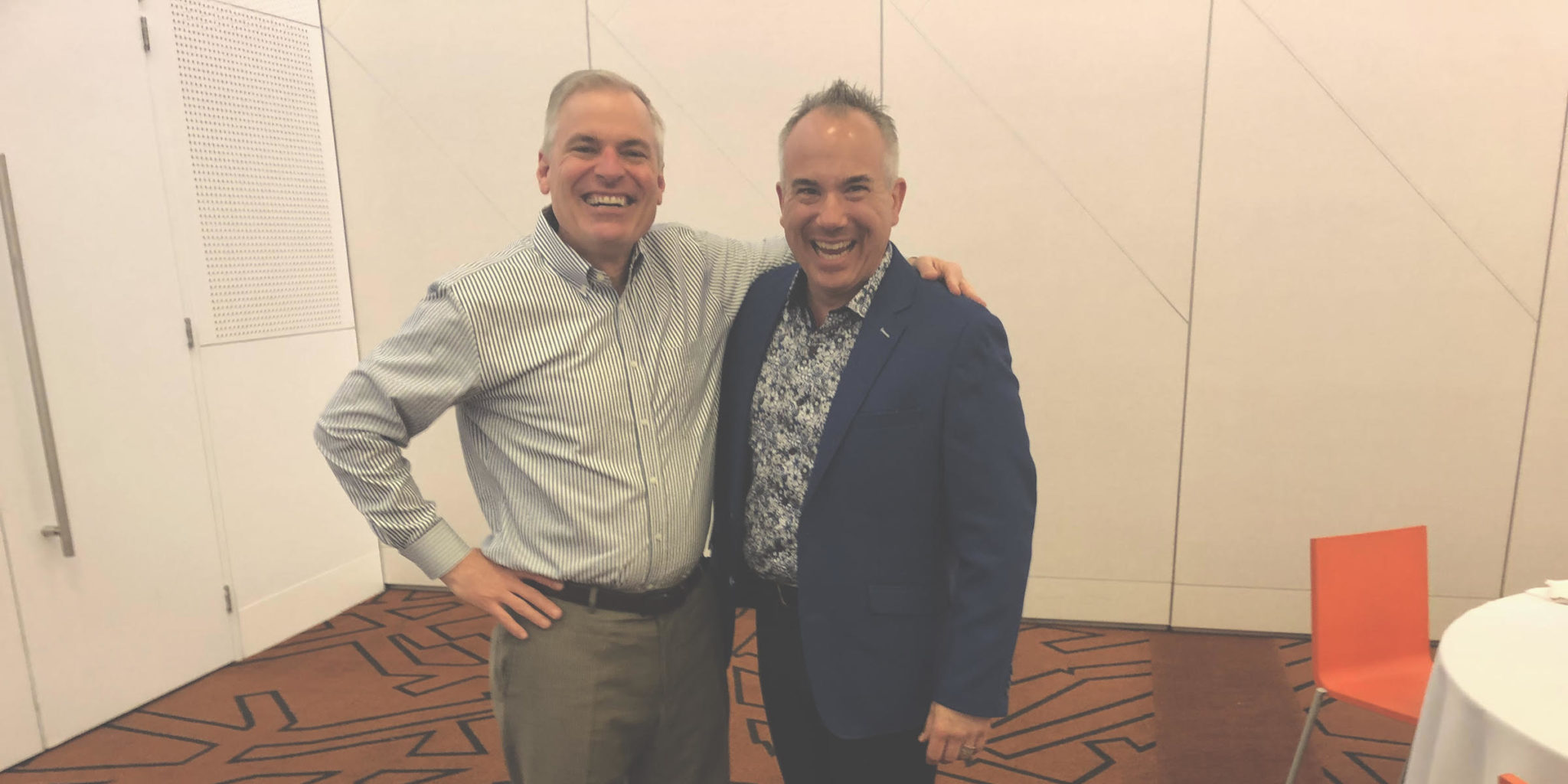The Magical Simplicity of the One-Minute Manager
“Feedback is the breakfast of champions.” - Ken Blanchard, PhD, One-Minute Manager
Our in-company leadership development programs, based on the principles in my book, have a number of modules to grow and strengthen teams, and help people improve their abilities as managers and leaders.
In a recent session, we shared principles of The One-Minute Manager, by Ken Blanchard PhD and Spencer Johnson MD. These are some of simplest and most powerful skills that some people, after many years of practice, still aren’t that great at.
To be a great manager of people there are three simple things you need to do:
- One-minute goal setting to make sure your people have clear goals to focus on
- One-minute praise when they achieve those goals or make solid steps toward them
- One-minute reprimands when they fail to deliver on the goals and need calibration.
If you are effective, all your people have clear goals, and receive specific praise when they achieve.
Not “Hey, good job!”.
Rather “Well done on that report because you found a way to make a complex problem very simple, and you kept the reports easy to understand and present to the board.”
A reprimand, when someone doesn’t deliver, includes how the work is not meeting expectations and what they need to do specifically to improve. It’s important that they know you believe in them and their capability, and that you make sure they have what they need to succeed next time.
Give lots of little feedback when it’s fresh in your mind. Don’t wait until an annual feedback session when you’ve forgotten the details.
Get in the habit of constantly sharing the things that work for you, and what doesn’t. People want to do a good job and they want to know how to improve.
Practice makes perfect
When we broke into role-playing groups of three – one manager giving feedback, one receiving it, and one observing - it was incredibly valuable for even experienced managers to practice. Some were rusty while others were very good at general positive praise but not specific praise. Some managers were good at reprimands but not at making it positive - and more than a few were uncomfortable.
“If you want to know why your people are not performing well, step up to the mirror and take a peek.”
Our jobs, as managers and leaders of people, is to remove ourselves as the variable for someone’s lack of performance. If someone is not meeting performance expectations, they have no clear goals, and no feedback, you are part of the problem - and you allow them to be less than high performers.
Make sure you are part of the solution, have regular conversations, give positive feedback and reprimands.
If you’re not doing the basics, you are doing your people a disservice.
The Challenge
- Make sure you are living with the principles of The One-Minute Manager, for all your people
- If you haven’t read it recently, pick it up and read it.
Thick Mind or Thick Book? The Power of Journaling
“I can shake off everything as I write; my sorrows disappear, my courage is reborn.”
― Anne Frank
Like many busy, driven people, I’ve struggled over the years with so many thoughts and ideas that it’s hard to focus on what’s most important, or I get lost or overwhelmed in too many idea opportunities.
For years I studied meditation - highly effective to calm and focus my mind - then one day, I reconnected with journaling, which I used to do at school, in creative writing time. At the time, I did it because I had to, but the technique I learned is insanely powerful for mental clarity and focus, today.
Writing words on paper clears my head and has become one of my most powerful Resilience Rituals (as in Chapter 3 of my recent book Your Oxygen Mask First).
One executive I work with, in India, summed it up by describing it as “thick mind or thick book”: either clutter your mind, or record it in a book. It’s magical when thoughts leave your head to be comfortably held on paper.
That discipline creates mental freedom: the ability to think about what you would like to versus what you are distracted by.
Whether I journal early in the morning after a workout, in a coffee shop or on a plane, here are the techniques that work for me:
- Take out the trash. Write down all the thoughts in your head, whether it’s one or a thousand. Write randomly about everything and anything that comes up for you. This can be in two minutes on two pages or 20 to 30.
- Solve problems. List all the things you want to dig into, opportunities you want to make the most of, and problems to solve. Then write more specifically about each one to create a mini action plan - or until you get the insight you are looking for. In almost every case, you’ll get clarity on your next step.
- Make to-do lists. As you go, write down ideas of tasks that need to be done, on the back page of your book or in your phone.
Ultimately, I end up with a few pages of trash and a few pages of strategic, deeper thinking. When I’ve finished, I tear out the pages of lists and strategies to get into action with and let go of, or shred, the rest.
It doesn’t matter how you do it - any free writing helps you to turn down the noise and figure out what to do.
It’s game changer – a life changer. You’ll be clearer, more grounded and have more high-value thoughts on what’s important.
The Challenge
- What do you do to calm and focus your mind and ensure your brain is open for high-value possibilities?
- What two or three things can you write about today?
What are you waiting for? Grab a pen - or device!
Entrepreneurship is a Team Sport
“Talent wins games, but teamwork and intelligence wins championships.“ - Michael Jordan
I just had an amazing travel back through time as a guest on the Your First 100K podcast with host Joseph Warren, which just went live.
Client and good friend Nigel Bennett referred me to him, and it was a phenomenal experience. Joseph took me back to when I started my business 25 years ago, and the struggles to make my first $100,000. I found myself laughing as I remembered some of the crazy stuff I did – some of which worked, and some didn’t! If I knew then…
So, what didn’t work?
I started without enough money and racked up debt because I was living the lifestyle I used to have when I had a great job. I eventually had to move back in with my parents when cash flow became too tight. And I procrastinated on new business development activities.
But the biggest mistake was trying to do everything on my own.
My big turning point came when I realized that business and entrepreneurship is a team sport – not an individual sport. From there, the three things that worked the most and had the biggest impact were:
- Collaborating with a great mentor and past manager of mine on a sales training program
- Joining networking groups to meet and build a network of people where we could help each other
- Helping to create a mastermind group of other start-up entrepreneurs to support, brainstorm and collaborate on strategies to improve our businesses.
Although these seem basic and obvious, it was all new to me when I was in my early 20s, as I started out in a new industry, with no experience working for a consulting or coaching firm.
Talking about it in the podcast made me realize that if I were to start again, with the same capabilities I had back then but with the strategies I know today, I could have grown my business dramatically faster.
It’s about knowing the right things to focus on. That’s why I talk about the importance of getting advice and mentorship in chapter 11 of my book, Quadruple Your IQ. You can learn a lot from people who have successfully dealt with what you are facing, 14 times before. I call them the 14Xers.
New entrepreneurs often try to do too much on their own through ignorance, pride, or ego.
Those who learn that entrepreneurship is a team sport from the beginning, definitely have the advantage.
Challenge
- Think about where you are today, whether you are starting out or scaling up a large enterprise. Reflect on what made you successful initially: Is there something about those simple principles you can return to that can make your company better today?
- Is there someone on your team who needs to go back to the basics, who you can mentor to share your knowledge?
Make Your Own Personal Growth Goals
“Our goals can only be reached through a vehicle of a plan, in which we must fervently believe, and upon which we must vigorously act. There is no other route to success.” - Pablo Picasso
One of the things I talk about in my book Your Oxygen Mask First is Resilience Rituals (see Chapter 3 in the book, and exercises on Five Steps to Mastery on pages 20 to 23, in the Workbook.)
If you want to enjoy ongoing success, you must have goals for your work, your self, and your life.
This is the key to taking care of yourself. For leaders who burn themselves out and fade along the way, this is one of the key strategies to get their game - and their mojo - back.
And for those who want to keep going it’s a great way - a critical way - to keep taking care of yourself; to stay your best so that you have the energy and focus to keep getting better and better.
Personal Growth Goals
A very simple way to keep this top of mind is to set your own personal growth goals.
Each of your team members will likely have three to five business goals per quarter (as you should if you are following Scaling Up™ or Rockefeller Habits™ or some other good planning methodology).
I recommend adding another layer of personal growth goals - one around Resilience Rituals to keep yourself strong, and another focused on changing a behaviour or improving something.
The Challenge
- In addition to your three-to-five quarterly business goals, set goals about building your own strength and resilience, and about how you are going to grow and improve.
- Tip: Do a weekly check-in with your team to see how you are doing – just a thumbs up or thumbs down. Am I sticking to my resilience rituals or not? Group accountability can help you to stay on track.
Time to Talk About Mental Health
“It’s not stress that kills us; it is our reaction to it.” – Hans Selye, pioneering endocrinologist
I’ve just returned from speaking , last month, at the sold-out Growth Faculty’s annual National Growth Summit, in Australia, with Patrick Lencioni and Whitney Johnson. What a thrill to be there! The audiences in Sydney and Melbourne were awesome, and the experience reminded me of how much I love to speak to big audiences, and to share the unique insights I’ve learned from others, over the years.
Whenever I share my experiences working with different leaders who give their best to grow their companies, and the mental health issues I’ve witnessed, it’s both a wake-up call and a relief for people in the room. A wake-up call for those who are experiencing issues, and a relief to learn it’s a normal part of the high performers’ game.
Over the last year-and-a-half since I wrote Your Oxygen Mask First, I’ve been amazed at how many of the highest performers have shared their challenges with me – about periods when it got very weird inside their brains, and what it took to get back on their feet again.
I consistently get feedback that naming mental health challenges destigmatizes them - and then talking about them, even more. It’s important to keep talking.
The Challenge
- How can you further destigmatize the normal challenges that we all have, when the stress becomes too much?
Stop, Look and Listen: Planning your Next 90 Days
“They always say time changes things, but you actually have to change them yourself.” ― Andy Warhol, The Philosophy of Andy Warhol
Remember the safety lesson Stop, Look and Listen? It’s the life skill all kids learn to make sure they are safe before crossing the street - to learn to pause and pay attention, before moving forward. It’s a great lesson – perfect for planning your next Quarter.
Before you rush, headlong, into an action plan you think is ideal, Stop Look and Listen to yourself - contemplate what’s gone well, what has to change. Ask how you can do a better job of your Work, your Self and your Life in the next 90 days.
It may be the most important time you’ll ever spend. We love to believe that time is infinite - in reality, the average life span in North America is 27,3745 days – chances are, you are 25% to 75% of your way through. That makes the next 90 days the most important of your life - the days that are in front of you, right now.
Make sure you make excellent use of them.
The Challenge
- Grab a coffee or tea and spent just 30 minutes to make sure you’re going in the right direction
- Review the Quarterly Plan template from Chapter 17 of my book
- Do the one-page review on your Work, your Self and your Life. What are the top priorities for each area that will make the biggest impact, enjoyment or improvement?
- Review your plan with someone important to you, at work and in your life.





